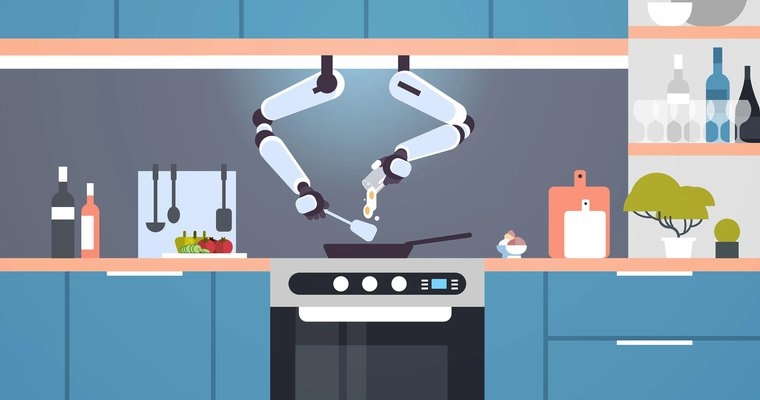"Where are we with AI in the Culinary Industry?"
"Hey, Google ... What is AI?"

With technology being so prominent in this day and age, there has been plenty of developments in how companies leverage technology to solve real-world issues. Particularly for the culinary industry, where would companies utilize AI for? If you thought recruitment, here’s a virtual cookie for you. As a selection tool platform ourselves, we pride ourselves in being able to cater to this particular industry, in spite of the many hurdles that we potentially face. But the truth of the matter is, technology and AI is really changing the way we take on recruitment. In the next few minutes, I hope that you are able to better understand how AI and tech are leveraged in the culinary industry.
In the 5-10 years, will we see the end of traditional recruitment?
Opinion: A rather bold and opinionated answer is, yes
Current Problem: Inefficiencies in recruitment and potentially high long-term costs associated with these inefficiencies. Vetting through a resume can take anywhere between 5-10 seconds for an average recruiter. For some businesses that have over 1000+ applications, this is very problematic because, from these very many applications, a lot of them do not fit the basic requirement of the posting. But on top of it all, that is far too much time given up to vet through to successfully obtain 1-2 applicants.
Existing AI solution: Outreach application. Companies utilize AI to essentially outreach to the targeted demographic from the recruiter's perspective. Targeted advertising towards the targeted demographic will weed out a significant number of individuals who don’t qualify. Other such applications involve predictions based on previous preferences of the recruiter. Essentially, these companies ‘scout’ various forms of social media to obtain a set of characteristics that recruiters prefer based on previous successful hires. On the last and probably most viable solution, AI allows recruiters to increase their talent pool while still optimizing the number of qualified applicants. That means, screening large number of applications at a fraction of the time required by an average human.
Potential drawback of solution: Take applications of AI with a grain of salt. The main drawback with AI notoriously being the amount of bias associated with the hiring. Studies done by the Harvard Business Review, highlighted that the targeted ads for supermarket cashier positions on Facebook were for a target audience containing, 85% women. Primitively, if we were to adopt AI catered towards the culinary industry, we would be wary of these biases that will potentially arise per job posting. Concluding remarks As a business, we are very transparent when it comes to how we leverage technology to improve your daily life. While there is a lot of promise with reducing the time taken to filter through every application, it would be wise for recruiters to be wary of the biases involved with such applications.
For weekly podcasts, tune into the Matchii Experience on Wednesdays at 12pm EST, where we connect with various entrepreneurs and industry experts to talk about their experience as well as some valuable tips that they may provide for individuals who are planning on going into the industry!
